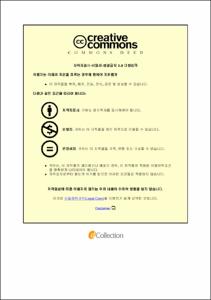규제가 기업 혁신 활동에 미치는 영향
- Abstract
- 4차 산업혁명이 과학기술 분야 만이 아니라 산업 전반에 미치는 영향력을 인식하고, 산업 간 시너지 효과를 극대화할 수 있는 국가 차원의 전략 수립이 요구되고 있다.
이에 대응하는 기업의 경쟁력 확보는 중요한 과제이다. 기업이 국제 시장의 무한 경쟁에서 살아남는 방법은 과거의 성공에 안주하지 않고, 끊임없이 기술의 혁신을 만드는 것뿐이며 기술 혁신 활동을 통한 기업의 핵심 역량의 확보가 기업이 생존하기 위해서는 필수이다. 기술 및 산업 융복합화 경향에 따라 서로 다른 새로운 기술 간의 융합이나 기존기술과의 결합을 통하여 새로운 제품과 서비스가 만들어진다. 이를 통하여 신산업분야가 창출⋅ 활성화될 수 있도록 제도적 기반구축이 요청됨을 의미한다.
본 연구에서는 국내 제조 산업을 대상으로 정부 정책과 제도 중, 규제 제도가 기업 혁신 활동과 성과에 미치는 영향을 분석하고자 한다. 이 과정에서 정부의 정책과 제도, 정부 규제, 기업 혁신 활동에 대하여 알아보려 한다. 이 연구에서는 과학기술정책연구원(STEPI)에서 3년마다 조사하는 혁신조사 데이터를 활용한 분석을 통해 정부 제도 규제와 제도 중 규제가 제조업 기업의 혁신성과 사이의 관계를 분석하고, 정부 정책의 역할을 검증하고자 한다.
가설을 “정부의 규제가 기업 혁신활동의 성과에 부적 영향을 미칠 것이다.” 라고 설정하고, 종속변수를 기업 혁신 활동에 관한 문항으로 설정하고, 설명변수를 회사의 업력과 2017년 매출액, 2017년 상시 근로자 수, 표준산업분류 산업코드 중 중분류 기준으로 산업더미를 포함시겼다. 독립변수로는 경제적 규제에 관한 문항, 사회적 규제에 관한 문항, 행정적 규제에 관한 문항을 포함하여 위계적 회귀분석을 실시하였다.그 결과, 각 규제별 β값이 경제적 규제 β=-0.202, 사회적 규제 β=-0.332, 행정적 규제 β=-0.264로 나타났다.
검증결과 정부의 규제가 기업 혁신 활동의 성과에 영향을 미칠 것이다. 라는 가설은 정부의 규제 증가는 기업 혁신 활동 성과를 감소시켰다. 이는 부정적인 영향으로 가설이 채택되었다.
4차 산업 혁명에 효과적으로 대응하기 위하여 환경상 규제, 산업 안전 그리고 보건 규제, 소비자안전 그리고 위생 규제, 근로 기존에 관한 규제인 사회적 규제부터 산업 현장에 의견을 반영하여 현장의 실정과 기업의 사정을 최대한 반영한 규제 정책수립이 필요하다.
Recognizing the impact of the Fourth Industrial Revolution not only on the science and technology field but also on the entire industrial field, it is necessary to establish a strategy for the entire nation that can maximize inter-industry synergies.
Securing is essential for a company to survive. According to the trend of fusion of technology and industry, fusion between different new technologies and new products and services are created by combining with existing technologies, and it is required to build an institutional foundation that can create and activate new industrial fields.
This study attempts to analyze the impact of regulatory systems on corporate innovation activities and outcomes among government policies and systems for the domestic manufacturing industry. In this process, we seek to investigate government policies and institutions, government regulations, and corporate innovation activities. In this study, we will utilize the innovation survey data conducted by STEPI to empirically analyze the relationship between government systems and regulations and the innovation of manufacturing companies through empirical analysis, and to verify the role of government policy.
The hypothesis is that "government regulation will affect the outcome of corporate innovation activities." The dependent variable is set to the question about corporate innovation activities, and the explanatory variables are the company's business strength and sales in 2017, the number of full-time workers in 2017, and the industry according to the middle classification standard among the standard industrial classification industry codes. Included dummies. Latitude regression analysis was performed as independent variables, including questions regarding economic regulation, questions regarding social regulation, and questions regarding administrative regulation. was economic regulation β=-0.202 and social regulation β=-0.332, and administrative regulation β=-0.264. Verification results government regulation will affect the outcome of corporate innovation activities. The hypothesis is that increased government regulation has reduced the performance of corporate innovation activities. This was a negative effect and the hypothesis was adopted. In order to effectively respond to the 4th Industrial Revolution, we will reflect opinions on the industrial site from environmental regulations, industrial safety and health regulations, consumer safety and hygiene regulations, and social regulations, which are regulations on existing labor. It is necessary to establish a regulatory policy that reflects the actual situation at the site and the circumstances of the company as much as possible.
- Issued Date
- 2022
- Awarded Date
- 2022. 2
- Type
- Dissertation
- Publisher
- 부경대학교
- Affiliation
- 부경대학교 기술경영전문대학원
- Department
- 기술경영전문대학원 기술경영학과
- Advisor
- 이민규
- Table Of Contents
- Ⅰ. 서론 1
1. 연구 배경 및 필요성 1
2. 연구의 대상 및 범위 3
3. 연구의 방법 및 구성 5
Ⅱ. 이론적 고찰 7
1. 선행연구 7
2. 정부 정책과 제도 18
3. 정부 규제 20
4. 기업 혁신 활동 36
가. 기술혁신에 관한 이론적 발전 36
나. 기업의 기술혁신 행태와 결정요인 41
다. 기술혁신 조사 42
라. 혁신 활동 과정 43
마. 혁신 활동 유형 43
5. 가설 설정 45
Ⅲ. 연구설계 및 연구방법 46
1. 연구 모형 46
2 설문의 구성 47
3. 표본 설정 및 분석 방법 48
Ⅳ. 분석 결과 49
1. 타당성 검증 49
2. 기술 통계 52
3. 상관분석 53
4. 회귀분석 결과 54
Ⅴ. 결론 59
1. 연구 시사점 및 한계점 59
참고문헌 64
영문초록 67
- Degree
- Master
- Files in This Item:
-
-
Download
 규제가 기업 혁신 활동에 미치는 영향.pdf
기타 데이터 / 9.82 MB / Adobe PDF
규제가 기업 혁신 활동에 미치는 영향.pdf
기타 데이터 / 9.82 MB / Adobe PDF
-
Items in Repository are protected by copyright, with all rights reserved, unless otherwise indicated.